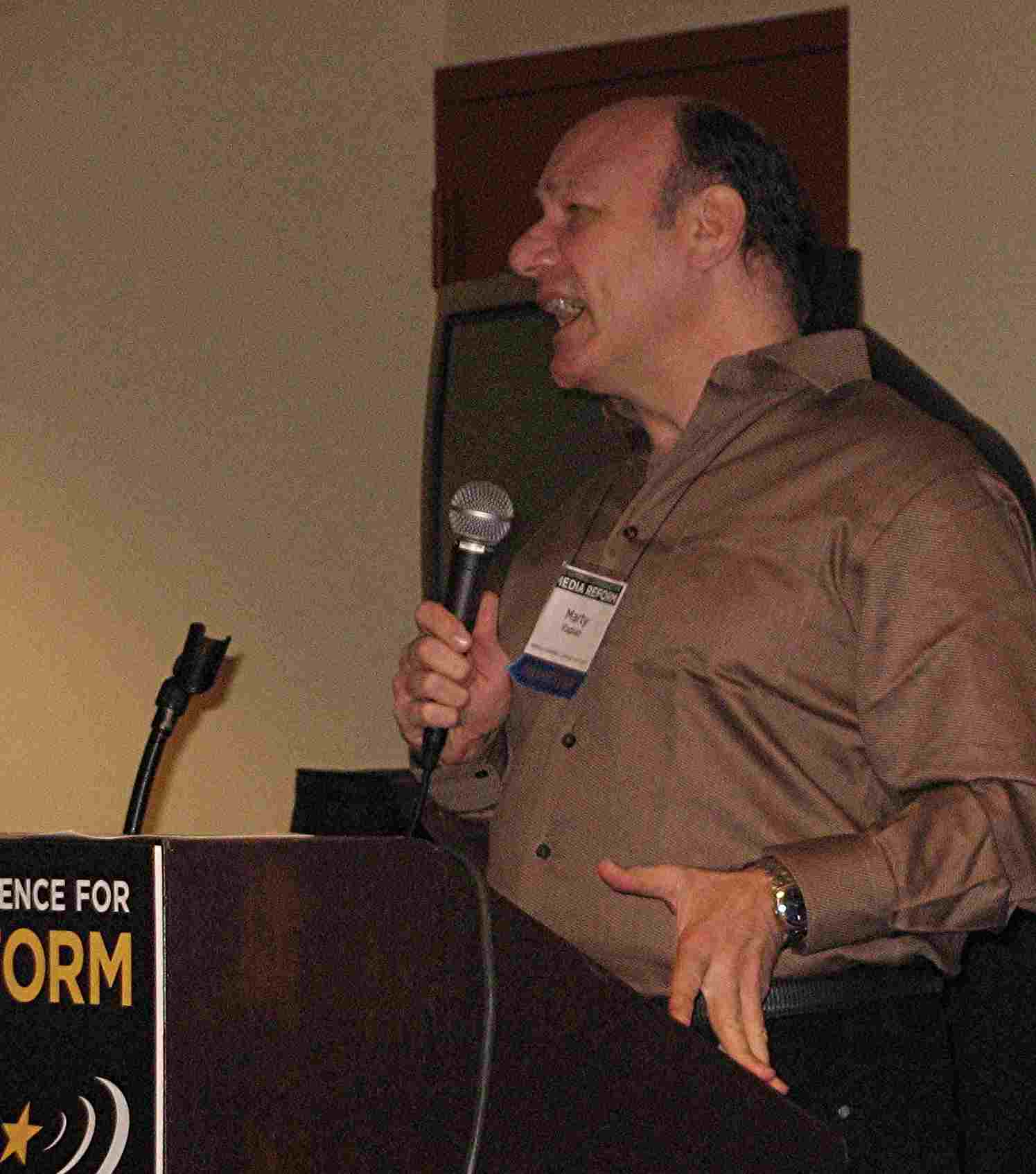This post is one of a continuing series of summaries I am creating regarding the sessions I attended of the National Conference for Media Reform in Memphis, Tennessee. Much more information about the conference, including audio of all of the sessions (and video of many) can be found at Free Press.
The academics that spoke at this particular session (“Media Scholars’ Policy Research Review”) were proof that academics (the people and their topics) can be exciting.
Mary Kaplan is the associate dean of the USC Annenberg School for Communication, as well as the founder and director of the Norman Lear Center. Kaplan has focused his research on the content and regulation of local television news.

The Lear Center studies “entertainment.” Broadly defined, this is the “attention economy” which is no longer a separate economy from anything else. Entertainment has expanded like an empire to consume all other activities. Media and journalism are mere branches of entertainment.
Kaplan reports on research establishing that local TV news is, by far, the most important source of news and information for Americans. Almost unbelievably, 65% of Americans say that local television news is their number one source of information.
I write “unbelievably,” based on the widespread lack of serious news content. The fluff of local newscasts drives me to distraction. See an earlier post on local TV news at this site. Kaplan is troubled that most of the content of local news is “soft.” News directors of TV stations have repeatedly told …


